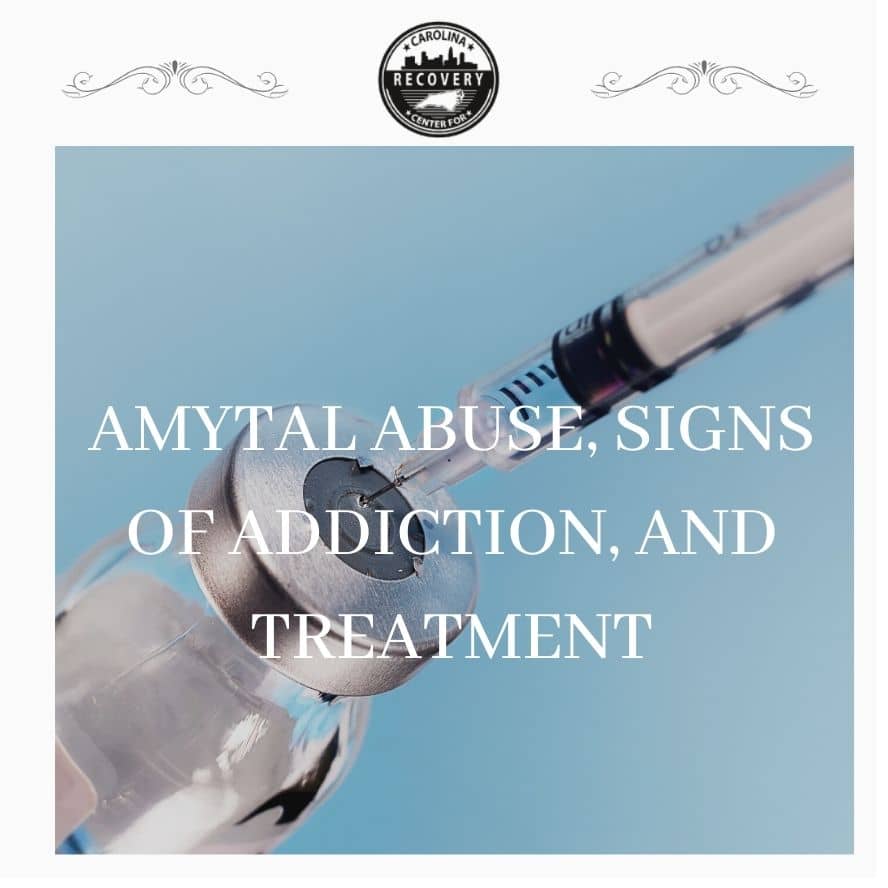Amytal (Amobarbital) Abuse, Signs of Addiction, and Treatment

Medically Verified: 2/1/24
Medical Reviewer
Chief Editor

All of the information on this page has been reviewed and verified by a certified addiction professional.
Amytal is the brand name for a substance known as amobarbital. Amobarbital is a barbiturate drug that is used to treat conditions like insomnia, anxiety, and epilepsy.[1] Most commonly prescribed as a sleeping pill, Amytal produces extremely sedating effects similar to that of large amounts of alcohol.
Because of the effects that Amytal produces, this medication is often abused. As a result, this substance is not prescribed as commonly as it used to be. However, many people in the club and party scene can get their hands on it and use it for its intense and short-lasting high.
While amobarbital is effective in treating insomnia and anxiety, Amytal abuse and addiction can be extremely dangerous.
The Signs of Amytal Abuse
Amytal is a schedule II drug, which means it has medicinal purposes but is a highly abused substance. This substance is a central nervous system depressant, meaning it has sedative effects. As a result, many people attempt to obtain this drug to get high.
Because of the similarities between the effects of Amytal and alcohol, maybe alcoholics switch to this medication to hide the smell of alcohol on their breath. If someone were to mix alcohol and Amytal, they would be at a high risk of overdosing. This is because both substances are central nervous system depressants.
The signs of Amytal abuse include:
- Nausea and vomiting
- Dizziness
- Headaches
- Anxiety
- Mental confusion
- Insomnia
- Tremors
- Fever
- Poor judgment
- Lowered inhibitions
- Slowed and slurred speech
- Appearing drugged or slow
- Unsteady gait
- Poor coordination
- Euphoria and overall sense of calmness
- Memory loss
- Drastic changes in behavior
- Muscle weakness
- Severe sleepiness
- Shallow breathing
- Frequently visiting the hospital to obtain more Amytal (doctor shopping)
- Behaving similarly to being intoxicated on alcohol
What are the Dangers of Amytal Abuse?
Amytal is a substance that carries a high risk of abuse and addiction. Because of this, it is only available as an injection in the hospital unless obtained illegally. One of the dangers of Amytal abuse is frequently injuring oneself on purpose to receive the medication or another similar medication at the hospital.
The effects of this substance can become dangerous as well. This medication causes extreme relaxation, sedation, and euphoria. When used in large amounts, the sedating effects of Amytal could lead to a life-threatening overdose.
The symptoms of a barbiturate overdose include:[2]
- Slowed breathing and difficulty breathing
- Confusion
- Slurred speech
- Drowsiness
- Fatigue
- Central nervous system depression
- Irregular breathing
- Decreased ability to urinate
- Irregular heartbeat
- Hypotension
- Coma
- Shock
- Hypothermia
- Ceased electrical activity in the brain
Individuals experiencing an amobarbital overdose require immediate medical intervention. Unfortunately, because this drug is not an opioid, medications like naloxone will not reverse an overdose. This means that medical treatment from professionals is the only way to help someone overdosing on Amytal.
Understanding Amytal Addiction
Amytal addiction can develop rapidly without the person even being aware of their descent into dependence. Because of this, the drug is federally regulated and only provided under the supervision of a medical doctor in a hospital setting. Unfortunately, people may illegally manufacture or distribute Amytal, allowing individuals to get their hands on this extremely addictive drug.
Someone who suffers from Amytal addiction may begin to doctor shop. Doctor shopping is the act of attending multiple doctors with fake ailments to receive more than one prescription for a drug. In the case of Amytal, this would be done in a hospital setting to receive an injection of the drug.
People who are addicted to Amytal will develop a tolerance to the drug. This means that their body will require larger amounts of the substance to experience the same mind-altering effects. Additionally, if the individual were to stop using the drug, they would experience symptoms of withdrawal.
The signs of Amytal withdrawal include:
- Anxiety
- Blurred or distorted vision
- Dizziness
- Exhaustion
- Irritability
- Headaches
- High blood pressure and body temperature
- Nausea
- Tremors
- Trouble sleeping
- Psychosis
- Seizures
Because of the symptoms of withdrawal associated with Amytal dependence, individuals must attend a medical detox program. These programs can help people overcome the symptoms of withdrawal through the use of FDA-approved medications, allowing them to focus on the other aspects of addiction recovery.
How is Amytal Addiction Treated?
The first step in treating barbiturate use disorder is medical detox. Once this is completed, patients will move on to the mental and emotional aspects of addiction recovery.
The best way to treat any form of addiction is through behavioral therapy, addiction education, group counseling, and relapse prevention planning. Additionally, if an individual suffers from co-occurring mental health conditions they must undergo treatment for those illnesses simultaneously.
Once someone finishes inpatient addiction treatment, they can opt to move on to outpatient treatment. This provides them with the freedom to attend work or school while continuing their recovery journey. Outpatient treatment offers the same services as an inpatient on a less intensive scale with more freedom allowed.
Finding Help for Amytal Abuse and Addiction
Amytal abuse quickly leads to addiction, which can be dangerous due to the risk of overdosing. If you or a loved one suffers from amobarbital abuse or addiction, it’s time to seek professional help. Thankfully, programs like Carolina Recovery Center can provide you with the tools you need to recover from the depths of addiction fully.
Contact Carolina Recovery Center today for more information on our substance abuse treatment program.
References:

